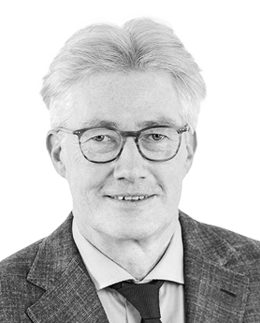Dr. phil. Marcus Beiner has been scientific director of the German Centre for Higher Education Research and Science Studies (DZHW) since 1 September 2025. Prior to this, he worked at the Lower Saxony Ministry for Science and Culture, most recently as deputy head of the Department of Research, Innovation and Europe and as head of various divisions, including Policy Issues in Research and Innovation and Sustainable Development.
Dr. Beiner began his professional career as a consultant for the interdisciplinary forums at RWTH Aachen University, where he was also managing director of the Technology and Society Forum from 1994 to 1998. From 2000 to 2007, he was a funding consultant at the Volkswagen Foundation, where his responsibilities included the university reform programme 'Performance through Personal Responsibility'. He then headed the Academic Affairs Department at the University of Bremen until 2012, where he was part of the core team behind the university's successful application for funding under the Excellence Universities programme of the German federal and state Excellence Initiative.
Dr Beiner studied philosophy, history, and German language and literature in Bonn and Frankfurt am Main. He received his doctorate in philosophy from RWTH Aachen University in 1997.

Dr. Marcus Beiner
Scientific Director
- +49 511 450670-910
List of publications
Education
12|1997
Doctorate: Doctor of Philosophy (Dr. phil.)
1993 - 1997
Doctoral studies at RWTH Aachen University
05|1993
Degree: Master of Arts (M.A.)
1991 - 1993
Studies: philosophy, medieval and modern history, and German language and literature at Johann Wolfgang Goethe University in Frankfurt am Main
1988 - 1991
Studies: philosophy, modern history, and German language and literature at Rheinische Friedrich-Wilhelms-Universität in Bonn
Employment
Seit 09|2025
Scientific director, DZHW
2022 - 2025
Deputy head of the Department of Research, Innovation and Europe and Head of the Unit for Fundamental Issues of Research and Innovation, Sustainable Development at the Lower Saxony Ministry for Science and Culture
2019 - 2022
Deputy head of the Department of Research, Innovation and Europe and head of the new Unit for Europe and International Affairs at the Lower Saxony Ministry for Science and Culture
2014 - 2019
Deputy head of the Research and Innovation Department and head of the Unit Life Sciences, Humanities and Social Sciences, Sustainable Development at the Lower Saxony Ministry for Science and Culture
2012/2013
Head of the Research Funding and Research Policy Unit at the Lower Saxony Ministry for Science and Culture
2007 - 2012
Head of the Academic Affairs Department at the University of Bremen with its six divisions:
- University Development and Capacity Planning,
- Research and Early Career Researchers,
- Studies and Teaching,
- International Office,
- University Archives, and
- Technology Transfer
2000 - 2007
Advisor in the Humanities and Social Sciences Department of the Volkswagen Foundation, Hanover
1997 - 1998
Managing director of the Forum for Technology and Society at RWTH Aachen University
1994 - 1997
Advisor to interdisciplinary forums (space research forum, environmental forum, materials forum, IT forum, technology and society forum)
1993 - 1994
Research assistant at the Philosophy Institute of RWTH Aachen University
1989 - 1993
Internships and editorial work at newspapers and a stock market information service (Bielefeld and Frankfurt am Main) during studies
Further activities
Publications on science policy (importance of academic freedom, role of experts in democracy, humanities in the science system)
Seit 2012
Extensive committee work (German Research Foundation, Science Council, working groups of the Joint Science Conference, supervisory boards and boards of trustees of regional and federal state-funded research institutions (Helmholtz Association, Fraunhofer Society), participation in panel discussions
2011
Participation in the Warwick International Programme in the Leadership and Management of Higher Education at the University of Warwick (4-16 September), focusing on: strategic positioning of universities, leadership, the British higher education system; site visits: Oxford, Birmingham, Wolverhampton, Leicester, Coventry, Warwick (training supported by the University of Bremen)
2010
Consulting for the Universidad Mayor de San Andres, La Paz/Bolivia as part of a project of the University of Bremen in the 'Dialogue on Innovative Higher Education Strategies' (DIES) programme of the German Academic Exchange Service (20-30 November), focus: development of research infrastructure and doctoral programmes
